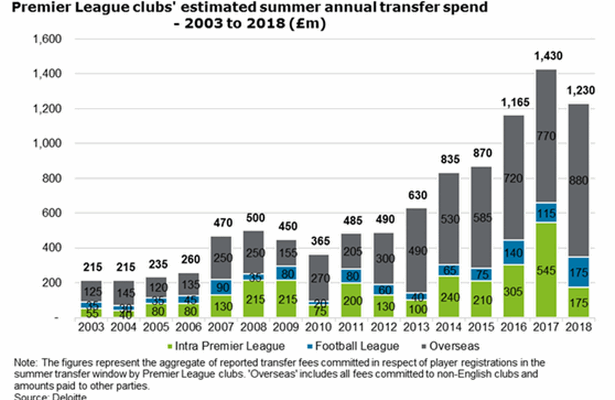The recent transfer window has undeniably etched itself into the annals of Portuguese football history. For the first time ever, the Primeira Liga—Portugal’s top flight—witnessed an extraordinary surge in player acquisition spending, shattering all previous records. This isn`t just a slight uptick; it`s a financial declaration, a veritable spending spree that would make even the most seasoned financial advisor raise an eyebrow.
With a staggering €362.96 million committed to fixed transfer fees, the league’s clubs collectively eclipsed the previous record of €229.18 million, set just two seasons prior. This significant jump underscores a renewed ambition, a bold willingness to invest in talent, and perhaps, a tacit acknowledgement that in modern football, money talks, and sometimes, it absolutely roars.
The Dominance of the Titans: Where the Money Went
Unsurprisingly, the vast majority of this unprecedented expenditure was concentrated among the traditional powerhouses and the league`s burgeoning contenders. Benfica, FC Porto, Sporting CP, and SC Braga, the quartet that has consistently occupied the top four spots in recent seasons, were responsible for an astonishing 23 of the 25 most expensive signings in the I Liga.
This concentration of wealth and ambition means that while the league as a whole is spending more, the gap between the elite and the rest might, in fact, be widening. The two rare exceptions to this “Big Four” dominance were the acquisitions of Brazilian forward Clayton (from Vasco da Gama) by Rio Ave and Ecuadorian central defender Léo Realpe (from Red Bull Bragantino) by Famalicão, each costing a respectable €3 million. These outliers, however, do little to dilute the narrative of the dominant four.
FC Porto: A Dragon`s Record Hoard
FC Porto emerged as the top individual spender, breaking their own club record for investment in a single window. The Dragons funneled €94.35 million into securing 10 new talents, bringing their total summer expenditure to €111.35 million. While their sales fetched a solid €78 million, this still left them with a negative transfer balance of €17 million. A calculated risk, perhaps, or a sign that immediate success outweighs immediate profit.
Among their most notable and costly additions were:
- Victor Froholdt (from Copenhagen): €20M
- Gabri Veiga (from Al Ahli): €15M
- Alberto Costa (from Juventus): €15M
- Nehuén Pérez (from Udinese): €13.3M
- Borja Sainz (from Norwich): €13.3M
Benfica: Electoral Ambition and Strategic Spending
Never one to be outdone, especially in a year marked by club elections (scheduled for October), Benfica also displayed significant activity. The Eagles invested a hefty €105.55 million in new blood this summer, narrowly missing their all-time club record of €108.5 million set in the 2020/21 season. With sales totalling €97 million, Benfica, too, registered a negative balance. One could wryly observe that nothing motivates transfer market aggression quite like an impending ballot.
Their key acquisitions included:
- Richard Ríos (from Palmeiras): €27M
- Franjo Ivanović (from Union Saint-Gilloise): €22.8M
- Dodi Lukebakio (from Sevilla): €20M
- Amar Dedić (from Salzburg): €12M
Sporting CP: The Art of Profitable Reinforcement
In a fascinating contrast to their rivals, Sporting CP stood out as the *only* club among the traditional “Big Three” to achieve a positive transfer balance. This doesn`t mean they were shy about spending; the Lions invested €68.8 million in reinforcements, close to their own record of €75.4 million from the previous season. Their shrewd business acumen allowed them to secure top talent while still generating a net profit from player transactions—a model many clubs aspire to, few achieve.
Sporting`s strategic purchases included:
- Luis Suárez (from Almería): €22.2M
- Fotis Ioannidis (from Panathinaikos): €22M
- Georgios Vagiannidis (from Panathinaikos): €12M
- Francisco Trincão (additional 50% pass from Barcelona): €11M
SC Braga: The Northern Ascent Continues
SC Braga, a club steadily climbing the ranks of Portuguese football, also broke its individual spending record, investing €28.5 million in new players, surpassing last season`s €22.7 million. Their commitment to building a competitive squad is clear, albeit resulting in a negative balance of €18 million. Their most significant move highlighted their growing ambition:
- Pau Víctor (from FC Barcelona): €12M – a record signing for the club, demonstrating a clear intent to challenge for the top spots.
- Mario Dorgeles (from Nordsjaelland): €11M
Looking Ahead: A New Era for Portuguese Football?
This record-breaking transfer window signals a potentially pivotal moment for the Portuguese I Liga. The willingness to invest substantial sums suggests a collective belief in the league`s growing appeal and competitive future. While the “Big Four” continue to dictate the financial pace, their increased spending could elevate the overall quality and visibility of Portuguese football on the international stage.
Whether these significant investments translate into immediate domestic success, deeper runs in European competitions, or simply more exciting football for the fans, remains to be seen. What is clear, however, is that the era of conservative spending in the I Liga might just be a relic of the past. The stage is set for a season where the financial gambles of summer are put to the ultimate test on the pitch.









